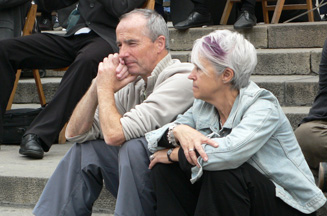
The news will disappoint many companies that have traditionally viewed the growing over 50s market as highly lucrative.
The financial downturn has impacted on the cash flow of consumers aged over 50. Many in the demographic have paid off their mortgages and so interest rate cuts have not benefited them. Those still in work are less certain of finding new jobs should they be made redundant, and retirement investments have lost value on the stock market. This has lead to a rapid change in buying habits.
Although over 50s continue to spend, they are wary of short-term deals and expect greater value from the products they do purchase.
Charlotte Robertson, head of marketing, online unit, for BSkyB, said: "Over 50s still have money to spend but are being selective about what they buy. Many in the sector have the time to research purchases and plan spends." She added that consumers are clamping down on costs in order to spend the money they do have on their hobbies and interests.
To reach individuals in this audience, marketers must understand what drives them. Key factors include financial stability, physical capability and personal interests.
Sue Wilkinson, director of marketing and supporter development for The National Trust, has found the 50+ market responds positively to messages that re-affirm the importance of quality time spent with people they love and doing activities they love.
But although many over 50s have similar needs Robertson warned it is a mistake to lump all over 50s into one group. "The sector does not solely consist of gardeners and bridge players. A lot of marketers are failing to respond to changing needs," added Robertson.
Ofcom's head of market research Kate Reeve's said: "The over 50s are a fascinating and diverse group. The audience is just as interesting and challenging as the youth market, but even more demanding in terms of how they interact with technology and what they want from their service providers."
The 50+ sector has traditionally offered strong brand loyally but changing needs and a continuing hunt for long-term value and personalised, targeted deals are creating inroads for companies that haven't operated in the sector before.
"Over 50s' are now more reluctant to part with their earnings but they still have money to spend," claimed Robertson. She concluded that the sector will remain profitable to marketers who take the time to re-evaluate it and understand its audiences' shifting requirements.
For more information on this topic, Marketing is hosting the conference



_1.jpg)
.jpg)
